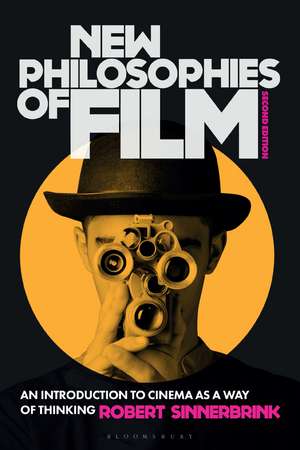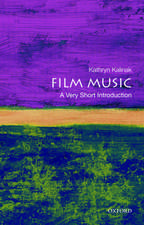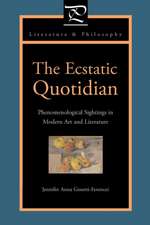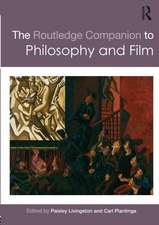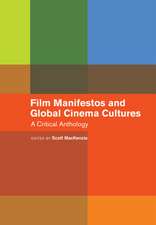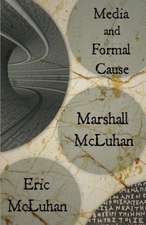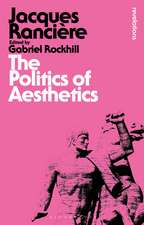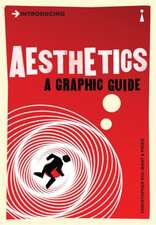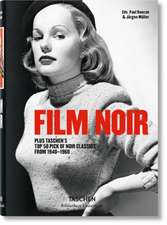New Philosophies of Film: An Introduction to Cinema as a Way of Thinking
Autor Dr Robert Sinnerbrinken Limba Engleză Paperback – 24 aug 2022
| Toate formatele și edițiile | Preț | Express |
|---|---|---|
| Paperback (2) | 153.02 lei 3-5 săpt. | +55.31 lei 4-10 zile |
| Bloomsbury Publishing – 24 aug 2022 | 153.02 lei 3-5 săpt. | +55.31 lei 4-10 zile |
| Bloomsbury Publishing – 12 oct 2011 | 217.27 lei 6-8 săpt. | |
| Hardback (2) | 442.48 lei 6-8 săpt. | |
| Bloomsbury Publishing – 24 aug 2022 | 442.48 lei 6-8 săpt. | |
| Bloomsbury Publishing – 12 oct 2011 | 713.29 lei 6-8 săpt. |
Preț: 153.02 lei
Preț vechi: 183.03 lei
-16% Nou
Puncte Express: 230
Preț estimativ în valută:
29.28€ • 30.57$ • 24.18£
29.28€ • 30.57$ • 24.18£
Carte disponibilă
Livrare economică 25 martie-08 aprilie
Livrare express 08-14 martie pentru 65.30 lei
Preluare comenzi: 021 569.72.76
Specificații
ISBN-13: 9781350181922
ISBN-10: 1350181927
Pagini: 432
Ilustrații: 20 bw illus
Dimensiuni: 156 x 234 x 35 mm
Greutate: 0.66 kg
Ediția:2
Editura: Bloomsbury Publishing
Colecția Bloomsbury Academic
Locul publicării:London, United Kingdom
ISBN-10: 1350181927
Pagini: 432
Ilustrații: 20 bw illus
Dimensiuni: 156 x 234 x 35 mm
Greutate: 0.66 kg
Ediția:2
Editura: Bloomsbury Publishing
Colecția Bloomsbury Academic
Locul publicării:London, United Kingdom
Caracteristici
New chapters on phenomenology, cinematic ethics, documentary film and television as philosophy, showcasing recent feminist, socio-political and ecological approaches to cinema
Notă biografică
Robert Sinnerbrink is Associate Professor of Philosophy at Macquarie University, Australia.
Cuprins
List of Figures Preface: Philosophical Film Theory Today Introduction: Why Did Philosophy Go to the Movies? Part I: The Analytic-Cognitivist Turn 1. The Empire Strikes Back: Critiques of 'Grand Theory' 2. The Rules of the Game: New Ontologies of Film 3. Adaptation: Philosophical Approaches to Narrative Part II: From Cognitivism to Phenomenology to Film-Philosophy 4. A.I: Cognitivism Goes to the Movies 5. Body Double: Adventures in Phenomenology 6. Bande à part: Deleuze's Cine-Philosophy 7. Now, Voyager: Cavell as Film-Philosopher 8. Scenes from a Marriage: The "Film as Philosophy" 9. What is Cinematic Ethics?: Cuáron's Roma (2018) as Case Study Part III: Cinematic Thinking 10. Photobiographies: The 'Derrida' Documentaries as Film-Philosophy 11. Planet Melancholia (2011): Romanticism, Mood, and Cinematic Ethics 12. Television as Philosophy: Reflections on Black Mirror Conclusion: A Dialogue on the Future of Film-PhilosophyNotes Appendix: Further Reading, Online Resources, WebsitesBibliographyFilmography Index
Recenzii
A valuable book for advanced students and scholars in film studies/film theory, and for philosophers concerned with the art of film.
A body of philosophical work has begun to accumulate around the provocation of cinema. Sinnerbrink enters the fray as a critical narrator of the history of this burgeoning philosophical enterprise as well as a participant in it and [...] makes an important contribution on both accounts.
Sinnerbrink's book will add a dose of welcome scepticism to anyone embarking on the consideration of some recent developments in anglophone film studies [...] Sinnerbrink injects life into his consideration of the cognitivists by means of adroit illustration from examples of his own choosing which display a cinephile's reservoir of resources - not always something that can be said of commentators content to use the same filmic examples as do their sources. This aspect is one of the many pleasures of Sinnerbrink's addition to the growing body of work in this field.
This book is not merely a second edition of Sinnerbrink's groundbreaking study. It is a fresh upgrade of his argument on philosophical insight emerging through an engagement with cinematic aesthetics, describing with dazzling intensity how films embody debates on cinematic ethics and ontology. A must-read for all cinephiles beyond academia.
Robert Sinnerbrink is the scholar and writer best capable of moving gracefully and clearly between the disparate major approaches to film theory, the philosophy of film, and film-philosophy. This new edition identifies points of contact between phenomenological and cognitive film theory in relation to ethics, politics, and new media. For anyone interested in making sense of the major strains of the philosophy of film and their ethical implications, this book is highly recommended.
This revised and updated edition includes television in Sinnerbrink's film-philosophy orbit and confirms this work as an indispensable overview of the field, as well as providing a further set of lucid and valuable case studies.
A body of philosophical work has begun to accumulate around the provocation of cinema. Sinnerbrink enters the fray as a critical narrator of the history of this burgeoning philosophical enterprise as well as a participant in it and [...] makes an important contribution on both accounts.
Sinnerbrink's book will add a dose of welcome scepticism to anyone embarking on the consideration of some recent developments in anglophone film studies [...] Sinnerbrink injects life into his consideration of the cognitivists by means of adroit illustration from examples of his own choosing which display a cinephile's reservoir of resources - not always something that can be said of commentators content to use the same filmic examples as do their sources. This aspect is one of the many pleasures of Sinnerbrink's addition to the growing body of work in this field.
This book is not merely a second edition of Sinnerbrink's groundbreaking study. It is a fresh upgrade of his argument on philosophical insight emerging through an engagement with cinematic aesthetics, describing with dazzling intensity how films embody debates on cinematic ethics and ontology. A must-read for all cinephiles beyond academia.
Robert Sinnerbrink is the scholar and writer best capable of moving gracefully and clearly between the disparate major approaches to film theory, the philosophy of film, and film-philosophy. This new edition identifies points of contact between phenomenological and cognitive film theory in relation to ethics, politics, and new media. For anyone interested in making sense of the major strains of the philosophy of film and their ethical implications, this book is highly recommended.
This revised and updated edition includes television in Sinnerbrink's film-philosophy orbit and confirms this work as an indispensable overview of the field, as well as providing a further set of lucid and valuable case studies.
